Liquid Wind is commited to the UN Sustainable Development Goals (SDGs) and the UN 2030 Agenda for Sustainable Development.
Green electrofuel, such as eMethanol, is critical for the global sustainability transformation of the maritime industry due its ability to reduce greenhouse gas emissions by 94 per cent when replacing fossil-based maritime fuel. Demonstrating that eMethanol offers a viable and sustainable alternative to fossil fuels. Liquid Wind’s business has significant potential to make a meaningful positive contribution to SDGs 7, 13, 14 and 17.
-

Long-distance shipping and heavy road transport are currently considered ‘hard-to-abate’ sectors, as they lack viable alternatives to fossil fuels. Liquid Wind will address this challenge by providing access to large volumes of renewable liquid fuel, which is compatible with existing infrastructure and can enable a significant reduction in fossil carbon emissions.
-

Liquid Wind's eMethanol projects foster innovation through the development and scaling of advanced technologies like green hydrogen and carbon capture for fuel synthesis. It promotes sustainable industrialization by providing a cleaner alternative to decarbonize hard-to-abate sectors and improving resource efficiency through industrial symbiosis utilizing CO2 from biogenic sources and builds resilient infrastructure crucial for the energy transition by establishing new, specialized production facilities that diversify energy sources away from fossil fuels.
-

Liquid Wind is committed to urgent and practical action to mitigate climate change. Using a standardised and modular approach, we can efficiently replicate eMethanol facilities to provide large volumes of carbon neutral fuel to replace fossil fuels.
-

As well as reducing pollutants impacting our climate, eMethanol is also better for life below water. Marine toxicity is low and it rapidly dissolves in water, supporting the Marine Industry in their ambitions for better ocean stewardship.
-

Addressing climate change requires collective action through collaboration and partnerships. The eFuel Design & Performance Centre (DPC), involving world-class companies Alfa Laval, Carbon Clean, Siemens Energy, and Topsoe, demonstrates the commitment of Liquid Wind and its partners to driving change through collaboration. This centre accelerates innovation and strengthens production capabilities to bring sustainable eFuels like eMethanol to market at scale and lower cost.

